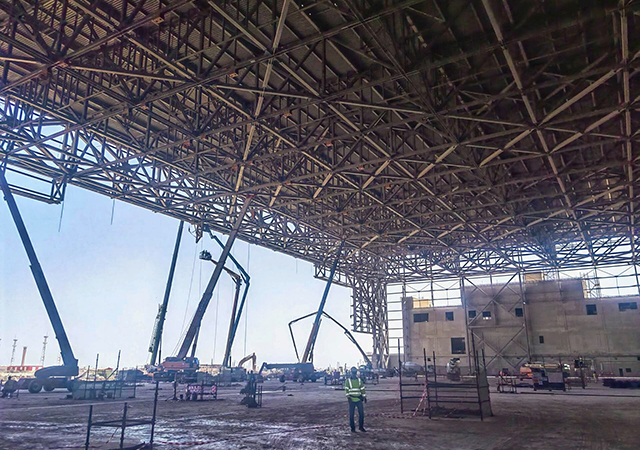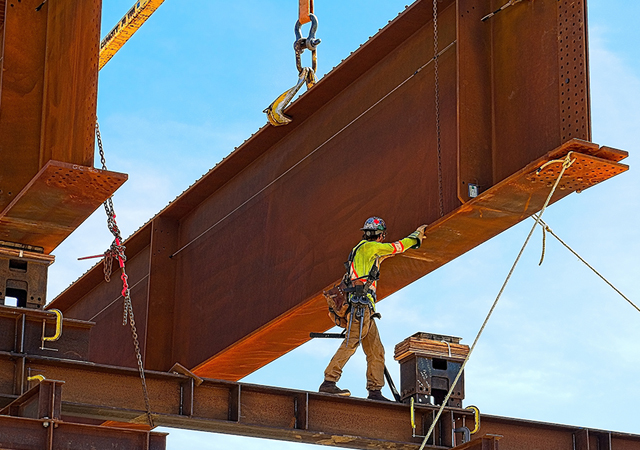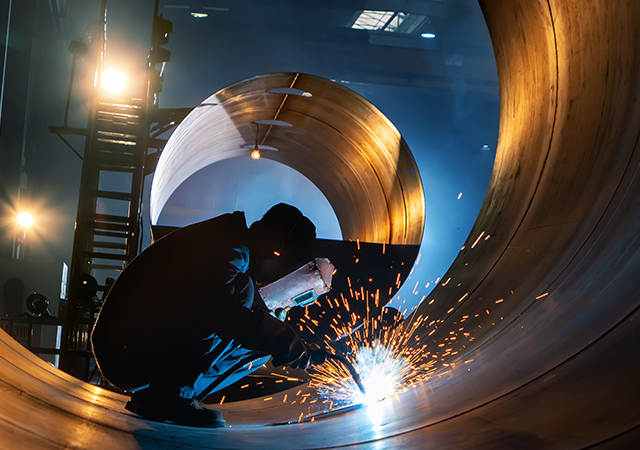Fabrication market booming in region
The steel fabrication sector in the Gulf is surging due to robust construction activities and technological advancements, according to BlueWeave Consulting, which forecasts a market value of $12.77 billion by 2030. This growth is driven by urbanisation and a preference for sustainable structures.
01 July 2024
The structural steel fabrication market in the Gulf region is expanding rapidly due to rapid urbanisation, infrastructure development, increasing construction activities, demand for sustainable and durable structures, and economic growth.
Based on its recent study, leading strategic consulting and market research firm BlueWeave Consulting anticipates that the value of the region’s structural steel fabrication market – which stood at $8.2 billion in 2023 – to grow at a CAGR (compound annual growth rate) of 6.53 per cent to reach a value of $12.77 billion by 2030.
The GCC’s structural steel fabrication market is primarily driven by robust infrastructure development initiatives, accelerated urbanisation and increasing construction activities in the region. Growing demand for commercial and residential spaces, coupled with government investments in major construction projects, propels the market, BlueWeave Consulting says.
Additionally, the expansion of the oil and gas industries further boosts demand for structural steel fabrication. Technological advancements, enhanced efficiency, and sustainable construction practices contribute to the market growth. Rising awareness of the benefits of structural steel, such as durability and cost-effectiveness, also stimulates market expansion in the GCC region, it adds.
 |
|
Installation of the steel structure of a heavy maintenance hangar of King Abdulaziz International Airport. |
While the fabrication sector serves a number of sectors including construction, automotive, manufacturing, energy and power, and defence and aerospace, the construction sector accounts for the largest volume of business. This growth is driven by factors such as increased disposable income and urbanisation, a global construction boom, and government safety regulations. The high preference for steel in construction, owing to its sustainability and recyclability, further contributes to its dominance in various infrastructure projects, says the research firm.
Tech-driven transformation
The adoption of advanced technologies emerges as a pivotal growth driver for the steel market. Transformative advancements such as building information modelling (BIM), automation and precision engineering are revolutionising the industry. Enhanced project efficiency, cost-effectiveness and superior structural integrity are catalysing market expansion, says the research firm.
As regional players increasingly integrate cutting-edge solutions, the industry is poised for sustained growth, attracting investors and stakeholders. This technological evolution not only streamlines operations but also positions the GCC market at the forefront of global steel fabrication, fostering a competitive edge in the ever-evolving construction landscape, it adds.
Impact of geopolitical tensions
According to the report, escalating geopolitical tensions significantly impacts the structural steel fabrication industry, disrupting the global supply chain and increasing production costs. Trade restrictions and sanctions hinder the flow of raw materials, such as steel, affecting fabrication processes. The 2018 United States steel tariffs and subsequent retaliatory measures exemplify this, leading to price volatility and supply chain uncertainties.
 |
|
The construction sector accounts for the largest volume of the steel fabrication business. |
Geopolitical conflicts, like the Russia-Ukraine crisis, also disrupt steel supply routes, impacting production schedules. Additionally, increased political instability can deter foreign investments, affecting the expansion and development of steel fabrication facilities. The report says geopolitical tensions create an atmosphere of uncertainty, challenging the structural steel fabrication sector with fluctuating costs, disrupted supply chains, and hindered growth prospects.
Fabrication Process
The region’s structural steel fabrication industry can be categorised by the fabrication processes used, namely metal welding, forming, cutting, shearing, stamping, and rolling. The metal forming segment – which shapes raw materials into desired forms – stands out as significant, enjoying substantial demand in the fabrication of structural steel components for construction and infrastructure projects across the GCC.
Competitive Landscape
GCC’s structural steel fabrication market is fiercely competitive. Major companies in the market use various strategies, including increasing investments in their R&D activities, mergers, and acquisitions, joint ventures, collaborations, licensing agreements, and new product and service releases to further strengthen their position in the market.
- Fabrication market booming in region
- Al Nafie Metal forges path to market leadership
- Firth deal eyes green facade solution
- Al-Usaimi expands; set for new challenges
- EBS buoyed by strategic regional orders



